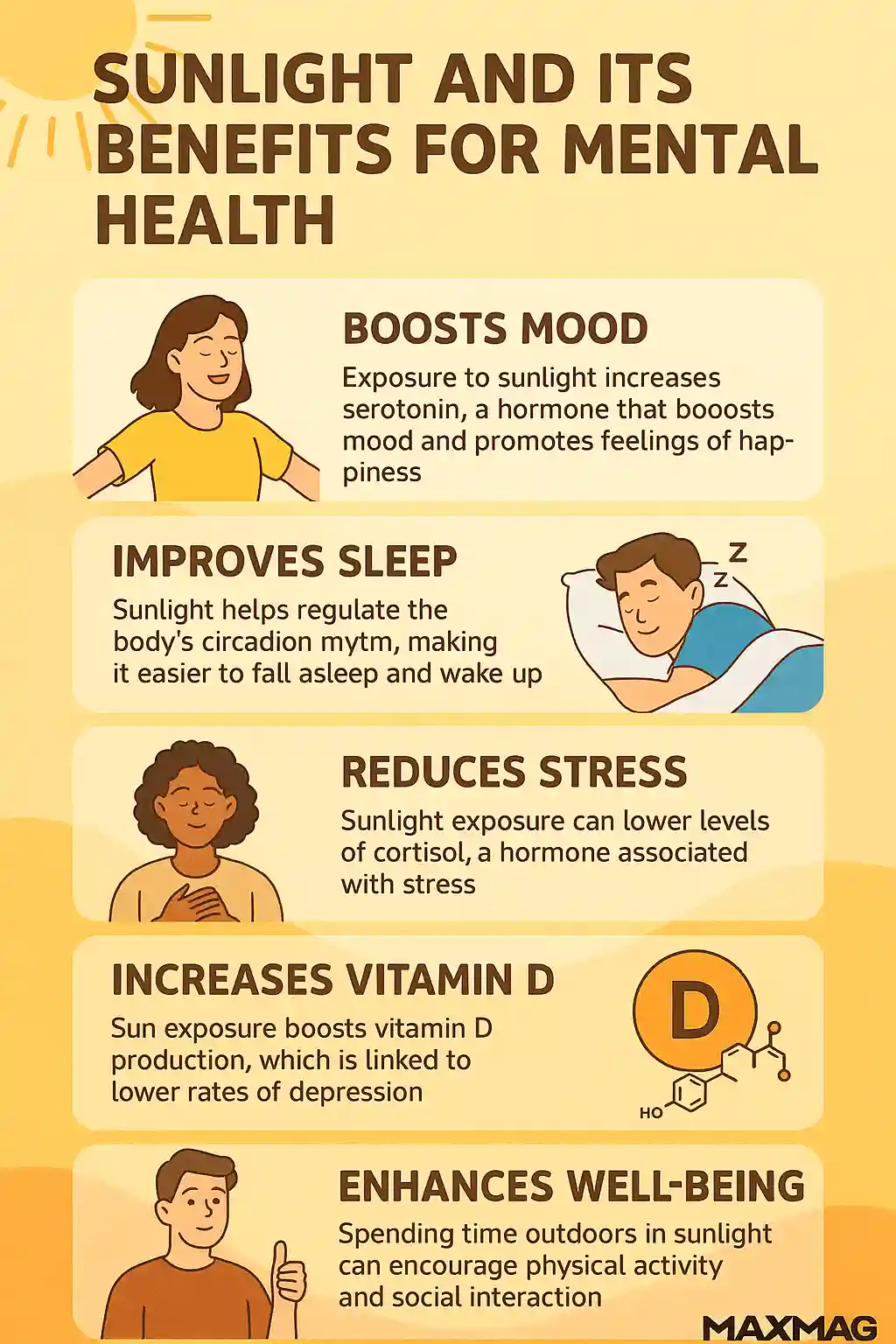
In a world increasingly dominated by screens, artificial lighting, and windowless offices, it’s easy to overlook one of nature’s simplest therapies: sunlight. But beyond providing warmth and supporting vitamin D production, sunlight exerts a profound impact on our emotional well-being. Mounting research in psychology, neuroscience, and public health confirms what many intuitively know—sunlight can be a powerful tool in supporting our mental state.
Why Sunlight Matters More Than Ever
Modern lifestyles have inadvertently created barriers between humans and natural light. Many of us spend 90% of our time indoors, according to a study by the EPA. While climate control and technology offer comfort, they also rob us of something deeply biological—our relationship with daylight.
This isn’t just poetic nostalgia. Light, particularly natural sunlight, regulates a wide range of brain functions, mood chemistry, hormone balance, and cognitive clarity. Our internal biological clock, or circadian rhythm, depends on consistent cues from the sun to stay in sync.
Lack of natural light, especially in the morning hours, is increasingly linked to mental health challenges such as anxiety, depression, fatigue, and insomnia. Fortunately, the solution is surprisingly accessible—getting more sunlight.
How the Brain Responds to Sunlight
Our brains are wired to react to light. Light signals enter through the eyes and stimulate the suprachiasmatic nucleus (SCN) of the hypothalamus—the region that controls circadian rhythm. The SCN tells your body when to wake up, eat, rest, and release essential hormones.
Morning sunlight exposure specifically triggers serotonin release. This neurotransmitter not only boosts mood but also helps regulate digestion and cognition. Later in the day, serotonin converts to melatonin, which induces sleep. When this rhythm is disrupted by artificial lighting or screen overuse, our emotional state suffers.
Several studies, including research by the American Psychological Association, show that individuals with higher daylight exposure experience better mood regulation and lower anxiety levels. These benefits are especially noticeable in people with seasonal or chronic mood disorders.
The Role of Light in Treating Depression
The use of bright light therapy for depression is now a well-established practice, especially in treating Seasonal Affective Disorder (SAD). However, natural sunlight remains the most effective and affordable source of light therapy.
Even mild to moderate depression symptoms can improve with consistent sun exposure. One 2022 study from Harvard Medical School found that patients with mood disorders experienced measurable improvements after just 30 minutes of early-morning light over a two-week period.
The body’s hormonal response—lower cortisol, increased serotonin, and regulated melatonin—forms a biological trifecta that supports emotional resilience and calm. This leads to enhanced energy, motivation, and a more stable emotional baseline.
Stress Reduction and Cortisol Control
Sunlight doesn’t just influence mood-related hormones—it also plays a vital role in managing stress. Cortisol, the hormone responsible for activating the body’s fight-or-flight response, needs to follow a natural peak-and-drop cycle throughout the day. Morning light cues this peak, helping us feel awake and alert. Without it, cortisol can become dysregulated, leading to chronic stress or adrenal fatigue.
Research from the Cleveland Clinic reveals that light exposure in the morning significantly reduces cortisol by late afternoon, allowing the body to wind down naturally. The simple act of stepping outside upon waking has ripple effects that influence your entire day.
This hormonal stabilization is one of the lesser-known mental health benefits of sunlight, but one that has dramatic implications for people struggling with anxiety, burnout, or sleep disruption.
Mental Health Benefits of Sunlight in Real Life
What does this look like in everyday scenarios? Take the case of schoolchildren: classrooms with larger windows and more natural light report improved test scores, reduced behavioral issues, and better concentration. A California Energy Commission study tracked students in three different schools and found that those in well-lit rooms progressed 26% faster in reading and 20% faster in math.
Now consider adults: office workers in windowless environments report higher rates of depression, migraines, and fatigue. But when given access to daylight—even through skylights or outdoor breaks—their productivity and morale soar.
The mental health benefits of sunlight are cumulative and accessible. A 20-minute lunchtime walk, morning yoga on a sunny porch, or even drinking your coffee outside can make noticeable changes in mental clarity, patience, and mood.
Sunlight and Sleep: Fixing the Cycle
A restful night begins with a sunny morning. Without proper light cues early in the day, our circadian rhythm becomes misaligned. This misalignment has been linked not only to insomnia but also to irritability, poor decision-making, and emotional reactivity.
In fact, light exposure may be more critical to sleep health than screen avoidance alone. While blue-light-blocking glasses are helpful, nothing matches the biological effect of actual morning sunlight.
As noted by the Sleep Foundation, getting sun exposure between 6 AM and 10 AM helps anchor our internal clock. The result? Better melatonin production at night and deeper, more restorative sleep cycles.
Improved sleep quality is one of the most underrated mental health benefits of sunlight, especially considering the global rise in insomnia-related disorders.
Dopamine and Reward Pathways
Sunlight not only influences mood and stress hormones—it also boosts dopamine. This neurotransmitter governs motivation, pleasure, and executive function. In other words, when you feel mentally sharp and excited to tackle your goals, dopamine is at work.
According to a 2018 study in Cell Reports, light exposure can activate dopamine pathways in the retina and brain, enhancing learning, memory, and decision-making.
Low dopamine levels have been linked to procrastination, anhedonia (inability to feel pleasure), and even addictive behaviors. By simply stepping into the sunlight, you’re activating reward systems that make life feel more vibrant and purposeful.
Sunlight and Cognitive Performance
Light also plays a role in memory, concentration, and overall brain performance. Natural light stimulates the prefrontal cortex, the brain’s command center responsible for focus, emotional regulation, and working memory.
In a trial conducted by the University of Illinois, participants exposed to daylight reported 23% higher cognitive scores on problem-solving tasks compared to those under artificial light. The researchers concluded that the brain responds better to biologically appropriate light—particularly full-spectrum sunlight.
These findings underscore the mental health benefits of sunlight in environments like schools, offices, and even home-based workspaces. Adjusting your lighting conditions can directly influence how your brain functions throughout the day.
Historical and Cultural Perspectives
Ancient cultures revered sunlight as sacred. The Greeks built temples facing east to capture the morning rays, and the Egyptians worshipped Ra, the sun god, as a source of vitality and renewal. In Japan, the tradition of forest bathing—Shinrin-yoku—includes exposure to dappled sunlight as part of the healing process.
These cultural practices reflect an ancient wisdom that modern science now validates: sunlight supports life not only biologically but psychologically. Rediscovering these connections could help modern societies reframe their approach to mental wellness.
Outdoor Therapy and Nature-Based Interventions
Mental health practitioners are increasingly embracing outdoor therapy. Walking sessions in parks, nature retreats, and horticulture therapy use light as a central healing element. Therapists report improved engagement and emotional breakthroughs when sessions occur in natural, light-rich settings.
Some clinics now prescribe “sunlight prescriptions,” recommending patients spend 15–30 minutes outdoors in the morning. This cost-free intervention is especially helpful for communities with limited access to conventional therapy.
Whether you’re battling depression, recovering from trauma, or simply trying to stay emotionally resilient, the mental health benefits of sunlight can be an empowering and sustainable complement to your healing journey.
Light, Loneliness, and Connection
Human beings are inherently social, and light fosters connection. Well-lit environments make people feel safer, more trusting, and more inclined to engage socially. A Stanford psychology review found that individuals in brightly lit rooms rated others as more likable and open, even when interaction was minimal.
Sunlight isn’t just improving your mood chemically—it’s also shaping your social interactions. This makes a compelling case for designing cities, homes, and public spaces with daylight access in mind.
Is There Such a Thing as Too Much Sun?
While the benefits are immense, moderation matters. Dermatologists recommend limiting unprotected sun exposure to 30 minutes per day and applying sunscreen thereafter. Individuals with sensitive skin or conditions like lupus should consult a doctor before increasing sun exposure.
Still, for the vast majority, the advantages far outweigh the risks. Using common sense—avoiding midday sun, hydrating, and wearing protective clothing—allows you to enjoy the psychological perks safely.
How to Build a Sunlight Routine
Not everyone lives in a sunny climate, but with intention, most people can create routines that incorporate daylight:
-
Morning walks: Even 15 minutes can sync your biological clock.
-
Outdoor meals: Move your lunch or coffee break outside.
-
Window seating: Position your desk or reading chair near a sunlit window.
-
Weekend getaways: Prioritize nature and sunlight-rich locations.
Small steps can yield major changes. A consistent routine makes the mental health benefits of sunlight part of your daily lifestyle—not just an occasional boost.
FAQ About the Mental Health Benefits of Sunlight
Q1: Can sunlight improve mood disorders?
Q2: What is the ideal time for sunlight exposure?
Q3: Does sunlight help reduce stress levels?
Q4: Is sunlight effective for children’s mental health?
Q5: Are light boxes as good as real sunlight?
Q6: Can I get mental health benefits on cloudy days?










